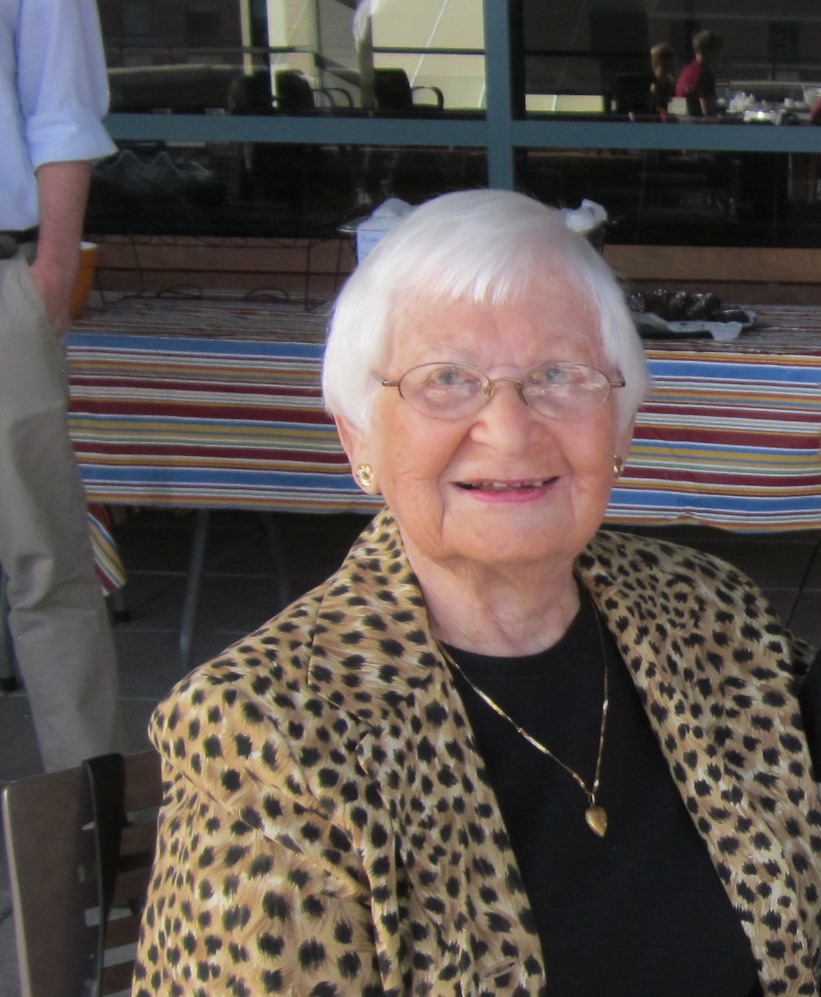Holocaust Survivors share their story
March 21, middle and high school (grades 6-12) students will have the opportunity to personally meet and hear the life stories of Holocaust Survivors during a Week of Understanding event co-sponsored by the Institute for Holocaust Education (Omaha) and Nebraska Educational Service Unit 2.
Survivors will be speaking live from the Wahoo Public Schools Performance-Learning Center, 2201 N. Locust Street.
However, with the power of videoconferencing technology, audiences may connect from any school location!
Respecting the age of Holocaust survivors, as well as the emotional exhaustion of recounting their experiences, two speakers will share their personal stories and respond to audience questions.
- Holocaust Survivor Rita Rubinstein will share her story during a morning presentation from 10:00 to 11:30 a.m.
- Holocaust Survivor Kitty Williams will share his story during an afternoon presentation from 1:30 to 3:00 p.m.
60 minutes of Survivor testimony will be followed by 30 minutes during which Survivors will respond to audience questions.
The seating capacity of the Wahoo Public Schools Performance-Learning Center is 733. All registrations are time stamped at the time of submission. In the event that a registration headcount exceeds available seating capacity, the individual designated as the school coordinator will be notified and will have the alternate option to video conference.
-
REGISTER STUDENT AUDIENCES
PLEASE, NO STUDENTS BELOW GRADE 6
REGISTRATION OPENS FEBRUARY 26 - REGISTRATION CLOSES MARCH 16
After that date, call 402-721-7710 and ask for Aryn Smidt or message asmidt@esu2.org. - Download and Review "Guidelines for a Holocaust Survivor Visit" provided by IHE for teacher and student preparation tips.
- Familiarize yourself with each Survivor's personal story, below. Names are hyperlinks to the personal biographies of each. This is a minimal preparation.
|
Rita Rubinstein was born in 1936 in Romania. In 1940, her father was drafted into the Soviet Army, never to be seen again. In 1941, Rita’s family (her mother, grandmother, an aunt, uncle, and two cousins) were given 24 hours to pack before being deported to a ghetto in occupied Ukraine. This ghetto was in a remote region and the family spent the next three years in a mud-walled hut with no running water. The area was eventually liberated by the Russian Army. Rita and her family returned to their hometown in Romania. Here they learned of her father’s death. Fearing Soviet policies, Rita and family obtained forged documents identifying them as Polish citizens, which allowed them to take a dangerous 3 month journey through Poland and find refuge in the Feldafing Displaced Persons camp in Germany. It took another three years before Rita and her mother were allowed to immigrate to the United States in 1949.
|
|
For the longest time, Holocaust survivor Kitty Williams of Council Bluffs didn't’t think her story warranted telling. She considered her suffering insignificant amid the weight of Nazi atrocities. Other tragedies far surpassed her own. Nobody could find hers interesting or edifying. It’d all been said before.
XXXXXX |
Now in its eighth year, this important IHE program began as an effort to bring first-hand Holocaust survivor and U.S. liberator testimony to schools across the metro, giving students the opportunity to hear this testimony while survivors and liberators are still here to tell their stories.
When ESU 2 became involved in 2012, second program year, the geographic reach expanded beyond metropolitan Nebraska schools to include not only live student audiences traveling to Wahoo but also school audiences connecting via video conferencing technologies from the rural east, central and panhandle regions of Nebraska.
"It is my hope that the primary, human experience of meeting and listening to Survivors will give our young adults an understanding and an appreciation that cannot be gleaned from secondary source materials," said ESU 2 spokesperson Diane Wolfe. "More powerful, more compelling than photos, text or video is the face-to-face personal opportunity to visit with those individuals. Additionally, it is our hope that this encounter will underscore the importance of taking action to prevent social injustice long before it becomes a holocaust-scale mass human disaster."
“As time takes us away from the Holocaust, it is even more critical to listen to the words of the witnesses,” said Liz Feldstern, IHE executive director. “Their personal stories add a face and a name to a distant and somewhat incomprehensible event. Not all survivors can speak about their experiences. Some want only to remember their memories silently, but for Bea and Rita, and others like them, there is a need to speak out.
“These individuals, and others like them, are the last to bear witness to the Holocaust. It has never been more important to listen to the words of this generation.”
Based in Omaha, the Institute for Holocaust Education provides support to Holocaust survivors in its community and provides educational resources, workshops, survivor testimony, and integrated arts programming to students, educators and the public.







